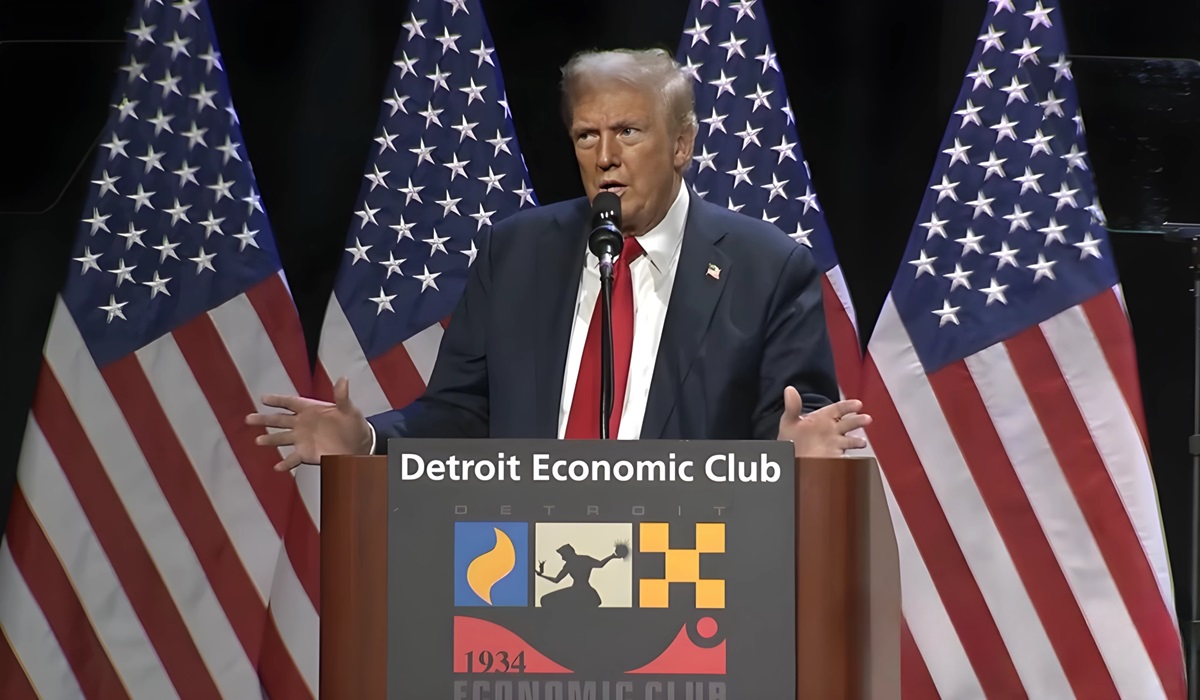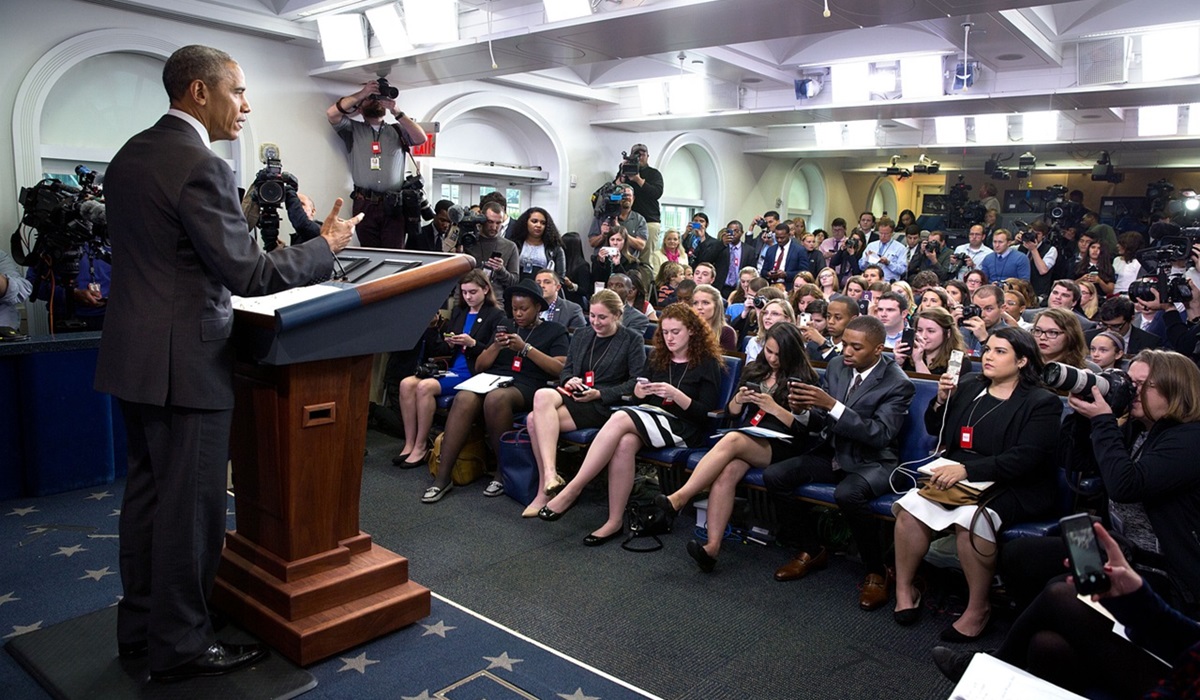Donald Trump’s latest campaign stop at the Detroit Economic Club featured a policy announcement that could resonate deeply with voters feeling the financial pinch in today’s economic climate. Speaking in the heart of America’s historic automotive industry, Trump unveiled his plan to make interest on car loans fully tax-deductible, essentially offering what he framed as “0% interest loans.” At a time when achieving a zero-interest loan seems like a distant dream, this simple yet powerful proposal speaks to the everyday struggles of Americans, many of whom are burdened by rising costs and tightening credit.
In his speech, Trump underscored the importance of helping middle-class families who are struggling with high interest rates. “You’re already paying enough on everything else—gas, food, and now they’re telling you car loans are next. Well, not under my plan,” Trump declared to an enthusiastic crowd. By offering a tax deduction on car loan interest, the former president promised to alleviate one of the most significant financial burdens on the average American, particularly in states like Michigan, where auto manufacturing is still culturally and economically central.
Detroit, once the car capital of America, has seen its fortunes decline over the decades, as the global economy shifted and industries moved elsewhere. However, Trump’s focus on the automotive sector taps into the state’s nostalgia for better days. He knows that speaking about cars in Michigan isn’t just talking about vehicles; it’s about identity, pride, and the hope for economic revival. His speech signaled to voters that he understands the pressures they face, offering them a clear, tangible benefit at a time when “every bit counts.”
Trump’s strategy is aimed at making Michigan a key battleground in the 2024 election, a state once considered solidly Democratic but now leaning Republican. The demographic shifts in Michigan over recent years have made it a state up for grabs. Trump’s growing appeal among blue-collar workers and the declining support for Vice President Kamala Harris in the region give him an advantage. The collapse of support from two key voting blocs—Black men and the Arab and Muslim communities—further strengthens Trump’s position in Michigan. Harris has struggled to maintain the coalition that helped her and Biden win the state in 2020, as her policies have been met with skepticism from these groups.
The Arab and Muslim communities, particularly in places like Dearborn, Michigan, have expressed dissatisfaction with the current administration’s foreign policies and handling of domestic issues impacting their lives. Meanwhile, Black men, once a reliable Democratic stronghold, have grown increasingly disillusioned, creating an opening for Trump to court their votes with promises of economic relief and a sense of recognition.
As Michigan trends redder by the day, Trump’s speech in Detroit was a calculated move to solidify his standing in the state. The former president’s campaign has framed Michigan as “Trump’s to lose,” and he knows the significance of crafting policies that hit home for its residents. With Harris losing grip on crucial voting blocs and facing a divided Democratic base, Michigan’s future seems more uncertain than ever.
Trump’s policy proposal may be simple, but its potential impact is profound. In a state where cars mean more than just transportation, and where economic uncertainty weighs heavily, the promise of 0% interest loans could be enough to tip the scales in his favor.









